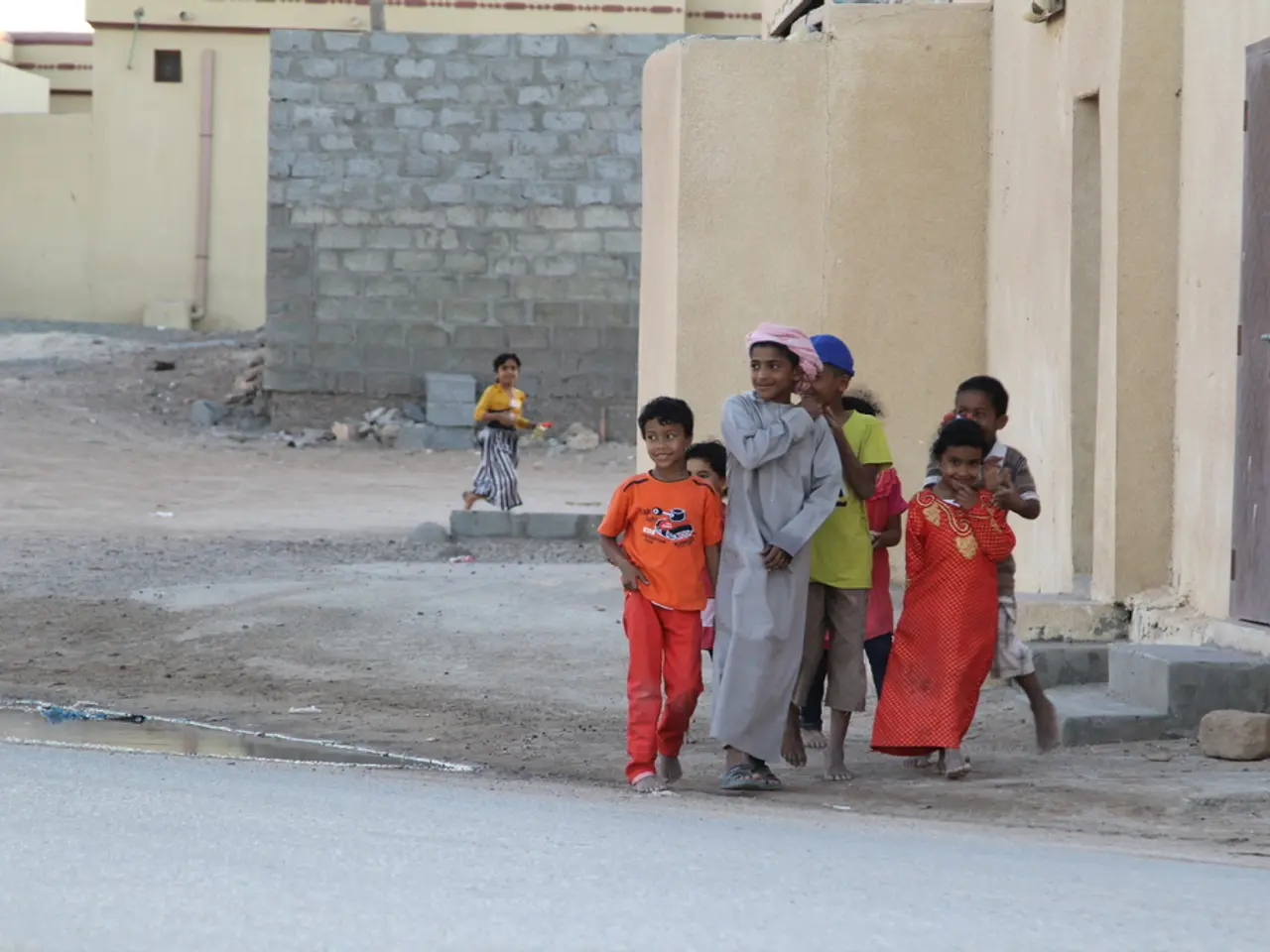Insights Gleaned from the OECD 2022 Ministerial Conference
In the bustling city of Paris, the OECD Ministerial Meeting of 2022 brought together a diverse group of stakeholders, including consumers, businesses, and governments, to discuss key policies and strategies aimed at ensuring a sustainable transition, improving education, and addressing pressing issues such as inflation, energy transition, youth inclusion, and skills development.
The meeting, which was held against the backdrop of global crises like the post-COVID recovery and geopolitical tensions, including the conflict in Ukraine, placed a strong emphasis on strategic investments supporting greener and more sustainable economies. This alignment with the 2030 Agenda and international commitments is crucial in tackling medium to long-term challenges.
Recognizing the need for innovative and competitive economies, the discussion also focused on policies to enhance skills development and youth inclusion. These measures are seen as critical for future economic competitiveness and social inclusion.
Governments have also taken steps to respond to economic security threats, inflation, and sector-specific challenges. For instance, Canada introduced surtaxes on certain imports to address industrial overcapacity and prioritized coordination on economic security and resilience internationally, including energy resources like critical minerals vital for the energy transition.
The OECD meeting also underscored the importance of creating a fairer and more supportive society, fostering more inclusive, innovative economies. This holistic approach to tackling economic and social challenges includes investments aimed at youth inclusion and innovation.
Young people are now considered key stakeholders in policy-making, and all public policy should be subjected to a 'future generations test.' This means that decisions should consider their impact on future generations, ensuring a balance between immediate gains and long-term sustainability.
As we transition from a labour market to a skills market, where skills and knowledge have become the new currency, individuals must engage in continuous re-skilling and upskilling to stay current and relevant in the rapidly evolving job market.
A balance must be found between long-term and short-term contracts in the job market, with governments striving to protect people, not jobs, by enabling equal access to re-skilling and upskilling, and career guidance for all individuals.
Climate change, an urgent challenge that requires intergenerational cooperation, was also a focus of the meeting. Contemporary generations are called upon to share the burden of actions needed to combat climate change, ensuring a fair distribution of responsibilities.
The OECD has adopted the "Recommendation of the Council on Creating Better Opportunities for Young people," reflecting its ongoing commitment to youth inclusion and innovation. The pursuit of welfare by the current generation should not diminish the opportunities for a good and decent life for succeeding generations.
In summary, the OECD Ministerial Meeting in Paris 2022 highlighted the need for integrated strategies combining sustainable investment, education enhancement, economic security measures, and inclusive policies targeting youth and skills development to address interconnected global challenges effectively.
- To support the transition towards sustainable and innovative economies, the OECD emphasized the importance of workforce solutions such as upskilling and reskilling, recognizing their role in ensuring competitiveness and social inclusion for future generations.
- In the midst of the post-COVID recovery and geopolitical tensions, discussions at the OECD Ministerial Meeting also centered around the critical need for continual education and self-development, particularly in the fields of science and finance, to address the rapidly evolving job market demands.
- As part of their commitment to youth inclusion and innovation, the OECD advocated for the implementation of education-and-self-development initiatives, ensuring that young people are equipped with relevant skills for their participation in the workforce and policy-making processes.




